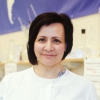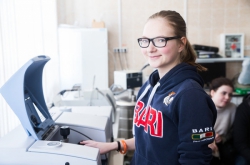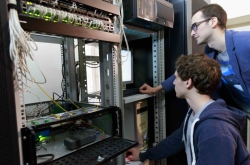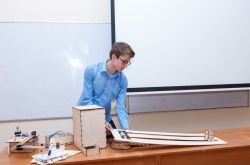The short term summer programs were designed on the basis of three prospective “Autumn Schools” which will be launched in October; these are schools for young biotechnologists, young ecologists and young engineers. In autumn, high school students will also have a chance to participate in a series of open lectures called “Edible Science”.
“The purpose was to give these teenagers a chance to get to know what will be offered at the School of Biotechnology and Cryogenic Systems from October this year. They had a unique opportunity to get to know the different departments of the School in a very short period. Our colleagues from St. Petersburg high schools suggested to hold this event during the school holidays, and were prepared to collaborate with us on this project”, explained Lyudmila Nadtochiy, Associate Professor of the Department of Applied Biotechnology, and organizer of the Summer School for young biotechnologists.

The course ran for six days and included both theoretical and practical aspects. The first two days were to prepare future biotechnologists. At the Department of Food Technology (Vegetable Stock), the students made Kvass (a traditional Russian drink), and evaluated the organoleptic properties of the finished product. On the second half of the first day, students at the applied biotechnology department made a special ice-cream mix according to the rules of production. On the second day, the students got to know about different cheese making production methods, and made soft Circassian cheese by hand, and enjoyed tasting the fresh food they created. At the end of the day, the school students participated in the final stage of producing soft ice-cream using the previous day’s mix. Through the process they learned that ingredients are very important, since they ensure the quality of the product. For example, when adding even a small amount of cocoa powder to the ice-cream mixture, the students felt that it greatly reduced the quality of the finished product.

On the last day of the Summer School at the Department of Food Technology (Vegetable Stock), the students prepared different types of biscuits which they enjoyed together with a cup of tea. Everyone received a certificate upon completion of the Summer School.
The next two days were spent at the young ecologists’ summer school, where the teenagers partook in special activities connected to chemistry and biology. They learned how to determine water quality using special equipment.
“Every day, we had different lab work. On the first day we made kvass, on the second day ice-cream and Circassian cheese. Then we examined water pollution in different parts of Russia and identified which water is cleaner and if it’s drinkable. We tested tap water, as well as water from Volga River, Obvodny Channel, Moika river and revealed how it’s contaminated according to various indicators: alkalinity, acidity and so on”, explained Elizaveta Sveshnikova and Anastasia Kryazhevskikh, students in their 9th grade at School 281.

On the last day, the students acted as young engineers. Students got a taste of what it’s like to be an engineer now and what it will be like in the future. They focused on “low temperatures”, how low they can get, how to work with them and what is heat flow. The students had a chance to work with dry ice and liquid nitrogen.
“I really enjoyed making Kvass. It’s not that difficult to make, although I’ll be unlikely to be able to repeat it at home since I don’t have the right equipment. They also taught us how to use different complex equipment. I really enjoyed making cookies and the cozy atmosphere created when we got to dig in at the end. The best part about that was that it’ll be easy to repeat at home!” – shared Nikita Kuvardin, in his 9th grade at School 281.






